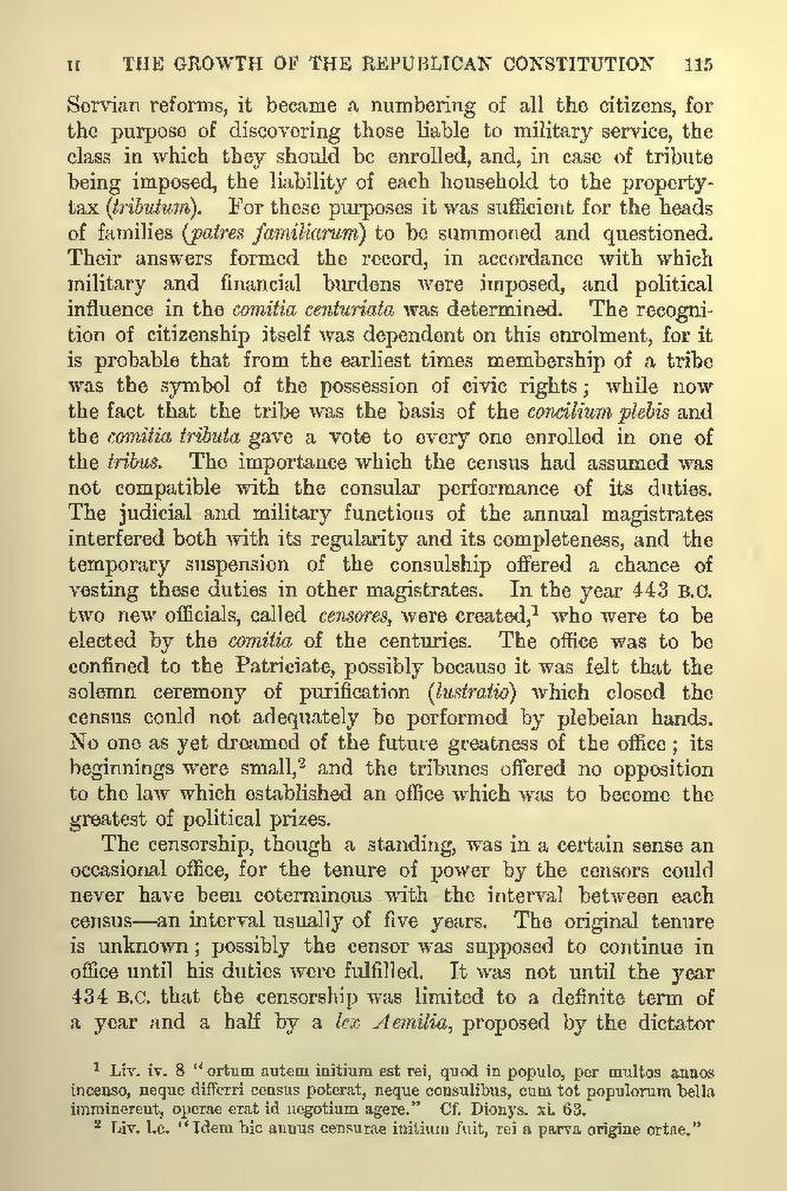Servian reforms, it became a numbering of all the citizens, for the purpose of discovering those liable to military service, the class in which they should be enrolled, and, in case of tribute being imposed, the liability of each household to the property-tax (tributum). For these purposes it was sufficient for the heads of families (patres familiarum) to be summoned and questioned. Their answers formed the record, in accordance with which military and financial burdens were imposed, and political influence in the comitia centuriata was determined. The recognition of citizenship itself was dependent on this enrolment, for it is probable that from the earliest times membership of a tribe was the symbol of the possession of civic rights; while now the fact that the tribe was the basis of the concilium plebis and the comitia tributa gave a vote to every one enrolled in one of the tribus. The importance which the census had assumed was not compatible with the consular performance of its duties. The judicial and military functions of the annual magistrates interfered both with its regularity and its completeness, and the temporary suspension of the consulship offered a chance of vesting these duties in other magistrates. In the year 443 B.C. two new officials, called censores, were created,[1] who were to be elected by the comitia of the centuries. The office was to be confined to the Patriciate, possibly because it was felt that the solemn ceremony of purification (lustratio) which closed the census could not adequately be performed by plebeian hands. No one as yet dreamed of the future greatness of the office; its beginnings were small,[2] and the tribunes offered no opposition to the law which established an office which was to become the greatest of political prizes.
The censorship, though a standing, was in a certain sense an occasional office, for the tenure of power by the censors could never have been coterminous with the interval between each census—an interval usually of five years. The original tenure is unknown; possibly the censor was supposed to continue in office until his duties were fulfilled. It was not until the year 434 B.C. that the censorship was limited to a definite term of a year and a half by a lex Aemilia, proposed by the dictator
- ↑ Liv. iv. 8 "ortum autem initium est rei, quod in populo, per multos annos incenso, neque differri census poterat, neque consulibus, cum tot populorum bella imminerent, operae erat id negotium agere." Cf. Dionys. xi. 63.
- ↑ Liv. l.c. "Idem hic annus censurae initium fuit, rei a parva origine ortae."
